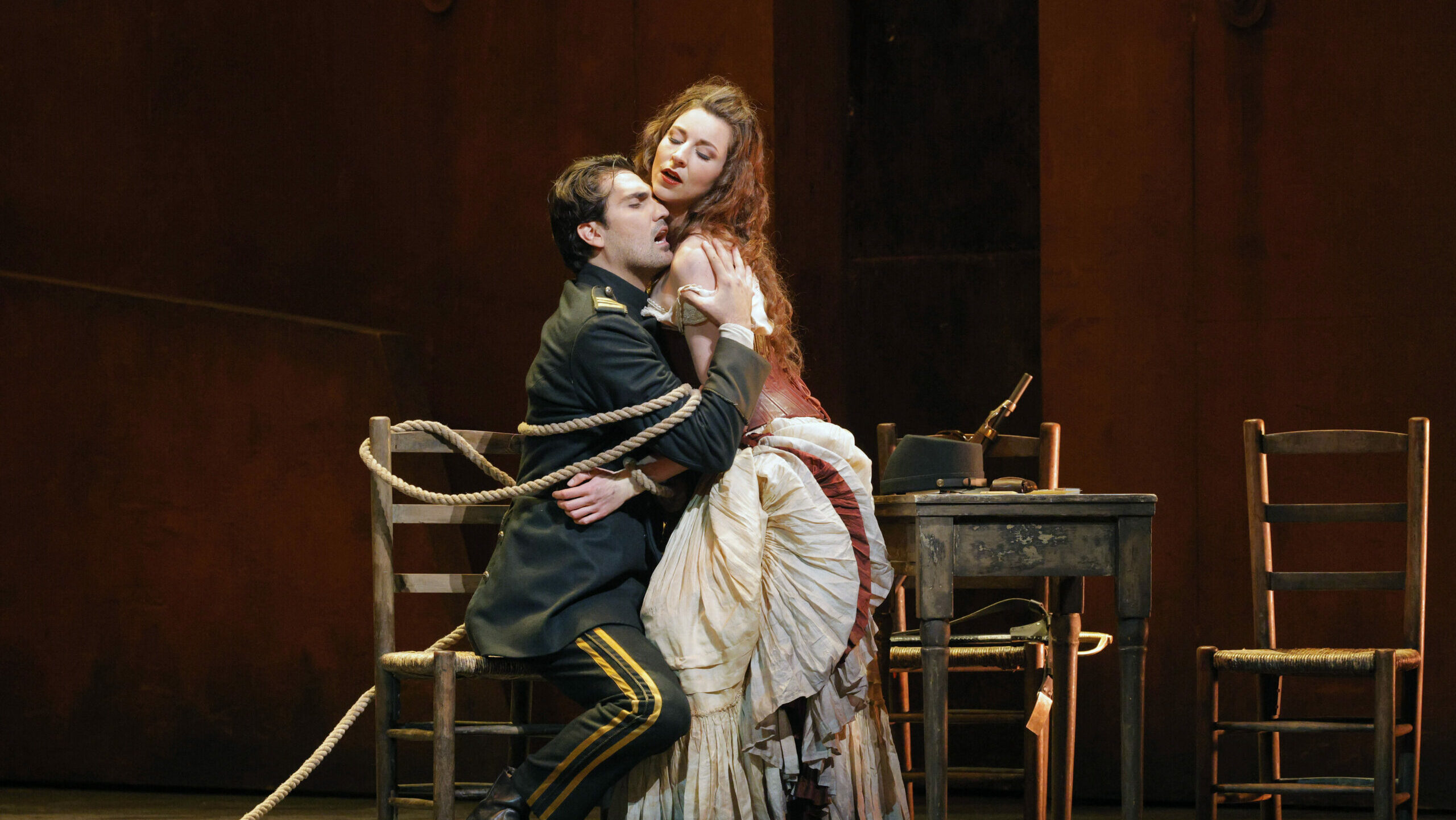
As on her last visit in 2018, she chose to bring a tenor of note along with her as duet partner. Back then it was Vittorio Grigolo but on Saturday it was the British-Italian Freddie De Tommaso who’s so fresh on the scene I can only rely on his program bio and Decca Classical page for background. I suppose it’s something akin to gifting an elderly person with a puppy in the hopes that the shot of youthful vitality will rub off positively on the senior recipient.
As I’m sure most of us recall, even from recent events, Madame Gheorghiu has what could be gently termed a ‘reputation’ in the opera business, so every appearance has the whiff of potential scandale. For those who might not be up on the history, I’ll happily offer a brief highlight’s reel.
After just two years as a professional singer, Ms. Gheorghiu was chosen by Sir Georg Solti for his first-ever production of Verdi’s La Traviata at the Royal Opera Covent Garden. The story goes that Solti was so devastated during the final dress that he left the pit in tears, speaking to no one. Sensing an impending lightning strike of superstardom, Solti and house management begged BBC Two to clear their schedule to film the 5th performance on December 8th, 1994. Decca also brought in their equipment so a CD and DVD were released concurrently to near universal acclaim. Nearly all hearts were broken by her extraordinary performance, including mine own. Since then she’s had artistic awards of all types, numerous political orders of merit, and much acclaim heaped upon her. Thus, a monster was born.
Let us turn to our text for today. Ms. Gheorghiu’s 2018 autobiography, A Life for Art, written with Jon Tolansky. (Whose ‘life’ is being sacrificed is my question?) In chapter five, entitled “Dramas and Traumas,” the authoress recounts the first of what was to become an almost regular reporting of conflicts between herself, management, and/or her tenor colleagues. The text of the book is written in the most formal and flowery language possible with Ms. Gheorghiu’s being interviewed by her co-author. Also sprinkled throughout at regular intervals are testimonials from her professional colleagues stating how lucky we are that so great a talent has descended upon us. It’s like reading someone’s High School yearbook.
Here the fun begins. On tour with the Metropolitan Opera in Japan in her fourth season with the company and in her first new production, the underwhelming Franco Zeffirelli Carmen (because it certainly wasn’t Bizet’s), Ms. Gheorghiu suddenly fell out of love with the blonde, braided wig she had worn as Micaela and told General Manager Joseph Volpe that she couldn’t wear it. After some back and forth, Mr. Volpe responded with the now famous quip, “The wig goes on, with or without you.” And so it did, on Ainhoa Arteta for the first performance. For the remaining evenings our soprano donned a headscarf. In print Ms. Gheorghiu bats those big brown eyes innocently and says,”I can be poor, but never ugly.”
Mr. Volpe and Ms. Gheorghiu both recount in their respective tomes (his: The Toughest Show on Earth, 2006) how the newest Zeffirelli production of La Traviata at the Met in 1998 lost both its announced stars over the insistence of Ms. Gheorghiu’s then-husband Roberto Alagna’s that his own brothers design and produce instead. A game of chicken proceeded with the contract signing and with the deadline being missed. Patricia Racette and Marcelo Alvarez were the lucky winners there (after Renée Fleming begged off from a busy schedule).
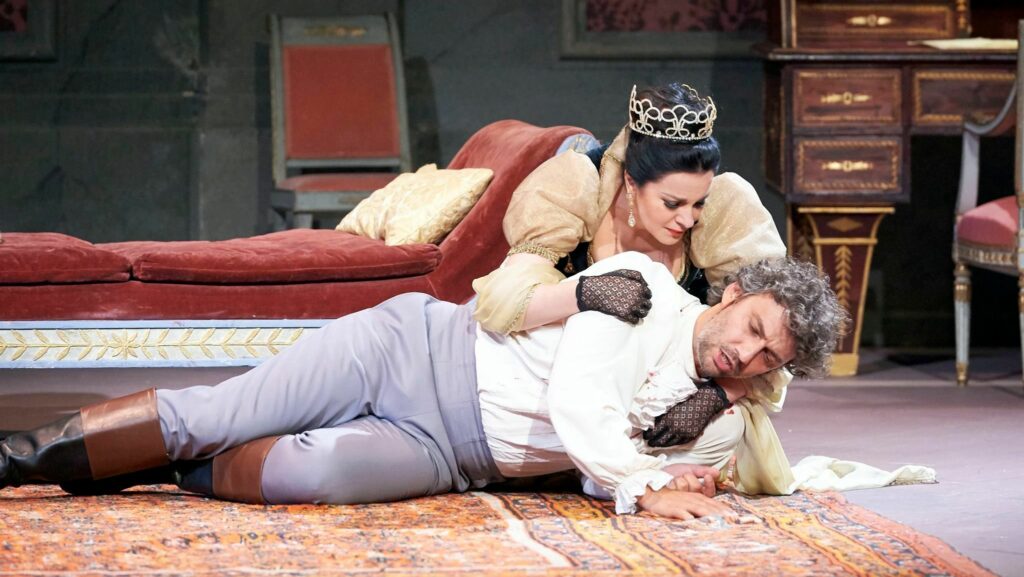
Wiener Staatsoper
In a 2016 performance of Tosca in Vienna, Jonas Kaufmann sang an encore of his Act III aria, “E lucevan le stelle” for the second night in a row due to the audience’s thunderous ovation. Ms. Gheorghiu refused to make her entrance until she had been apologized to. This past September in a performance of the same opera in Korea she interrupted the local tenor’s encore of the same aria by coming onstage, waving the conductor and orchestra to a halt, and saying, “This is a performance, not a recital. Respect me!”
Other highlights of her skullduggery include getting fired from the Lyric Opera of Chicago in 2007 for missing six out of ten staging rehearsals, including the piano dress and two orchestra rehearsals, in a production of La bohème directed by no less than Renata Scotto. I can only imagine how that went down with La Scotto. (Oh, to be an operatic fly on that wall.) In her book she explains this away as a simple misunderstanding as she had to be by her husband’s side for his performances of Aida at the Met. (After he himself caused his own scandal at La Scala upon his role debut as Radames.) She claims to have only missed one rehearsal, with permission.
Then there’s Conductor Leonard Slatkin’s departure from the aforementioned Met Traviata production, when she sang it for the second time in 2010, after just one performance. According to his press statement, this was due to Ms. Gheorghiu’s antics. She also claims sole responsibility for arranging Jonas Kauffman’s Met debut on the occasion of her first Met Traviata, as I’m sure absolutely no one in Met management had any idea who he was in 2006. (Mr. Kaufmann is conspicuously missing from the aforementioned testimonials in the book, considering the level of gratitude he must have for our soprano gifting him with a career.)
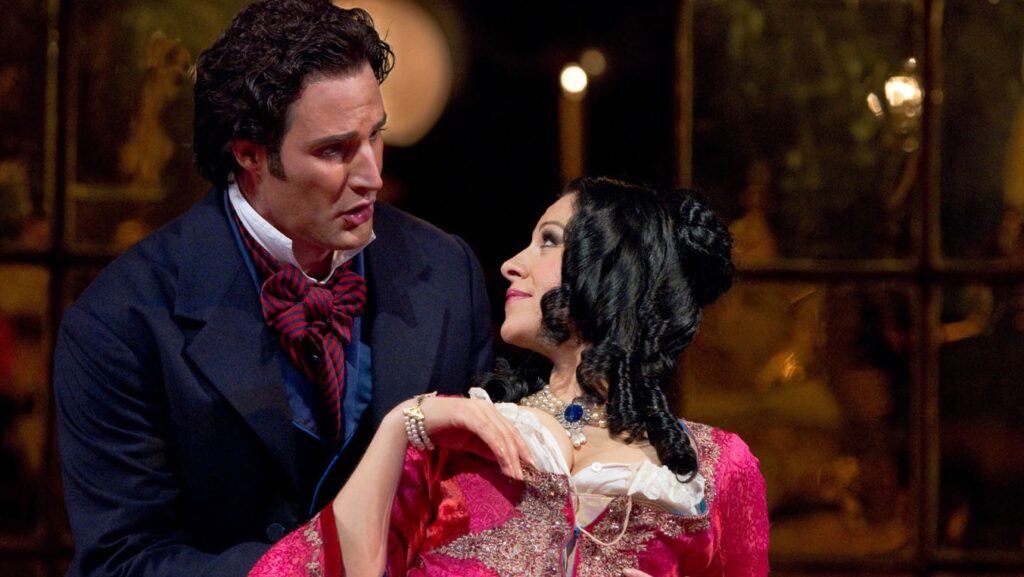
Marty Sohl/Metropolitan Opera
There are more, but suffice to say the backstage staff at the Royal Opera took such pleasure in her presence she was known informally as La Draculette. Don’t ask about how she nixed poor Leontina Vaduva off a well-deserved recording project with Mr. Alagna.
My own experience with Ms. Gheorghiu’s shenanigans stretch back to 2004 when she and Mr. Alagna stepped into just two performances during a run of La bohème here at LA Opera. This was when the heat of the “Love Couple” was starting to noticeably wane with press and public. Nevertheless, it generated two packed houses. What transpired was more a personal appearance than an actual performance. Ms. Gheorghiu played almost directly to the house all evening, especially during Act II when she made every effort to pull attention from the evening’s Musetta culminating in her consumptive, fatigued, Mimi jumping on Rodolfo’s back waving a French flag as the curtain fell on the Cafe Momus. So, yours truly was practically rubbing my hands together in anticipated glee for Saturday night’s performance and determined to call “Bis!” for Freddie De Tommaso even if he showed moderate promise.
Ms. Gheorghiu took the stage in a lovely black gown with short sleeves, modest decolletage and covered with sparkle-encrusted gossamer. She opened the concert with Gluck’s “Che farò senza Euridice?” from Orfeo ed Euridice which seemed an odd choice for a lyric soprano. It shortly became apparent that this was being used as a warm up piece to get the voice in place and the resonators humming. I can only use the word ‘labored’ to describe what ensued.
Things brightened considerably when Mr. De Tommaso took the stage for Cavaradossi’s Act I entrance aria, “Recondita armonia,” from Giacomo Puccini’s Tosca. This, my friends, is a real tenor voice. He filled the theater easily with an ample, burnished tone, ringing out gloriously at the finale into the glowing acoustics of the Broad. Obviously he had warmed up at home.
They traded back and forth with some charming Puccini songs before Mr. Tommaso finished with “Sole e amore.” He took a moment to introduce it to the audience, saying that many of us would recognize the main melody (from Act III of Boheme) without giving it away. The incongruity of his British accent caused a momentary double-take since his voice is of unarguable Italian origin. He also offered an absolutely rhapsodic “Ideale” by Tosti which I will carry as a souvenir for quite some time to come.
They both closed the first half with the Act I entrance of Tosca and the ensuing duet. Ms. Gheorghiu has made a specialty of this role since her balls-to-the-wall recording she made with Mr. Alagna under Antonio Pappanotook all of us by surprise in 2001 for its ferocity. Although it originated as the soundtrack to a disappointing film that doesn’t warrant searching out, she debuted the role on stage at Covent Garden in 2006. I reviewed the subsequent video release on these pages. She’s barely taken that tiara off since.
Luckily muscle memory carried the day for Ms. Gheorghiu as she played sexy kitten to Mr. De Tommaso’s ardent painter. She brought off the line, “Ma falle gli occhi neri!” to hilarious effect both times which, in the concert context, was certainly forgivable.
Mr. De Tommaso opened the second half with the Duke’s opening aria from Verdi’s Rigoletto. It was a buoyant performance that didn’t sacrifice note values for verve. His “Ah, si ben mio” from Trovatore came later and had the same respectful propulsion and plangency, although instead of the trills the composer asked for, we got a discreet melisma both times. Not the first tenor to bypass that particular challenge.
Ms. Gheorghiu gave us Adriana’s Act I entrance, ”Ecco, respiro appena…Io son l’umile ancella” which started carefully and ended so deliberately and slowly on the final ascending phrases it became concerning. Later she gave us Margherita’s “L’altra notte in fondo al mare” from Boito’s Mefistofele which, with its careful scale-work and climactic B-flat, sadly proved a miscalculation. In between they duetted on Traviata’s, “Parigi, o cara” which showed them both to their best advantage.
I should mention the evening’s excellent accompanist Vincenzo Scalera who offered us four solo pieces at regular intervals throughout. His “Valzer” in F-Major by Verdi was especially fine. He has a precision at the keyboard that isn’t compromised by the feeling he plays with. He was particularly attentive to Ms. Gheorghiu when she needed a little extra time here and there (and she continuously let him know with sidelong glances to the keyboard). He also didn’t rush Mr. De Tommaso off any of his high notes, which he very obviously enjoys showing off. (What tenor does not?)
We had more song literature,“Dicitencello vuie” by Rodolfo Falvo from our tenor and then a sultry “Bag?, Doamne, luna’n nor” by Tiberiu Brediceanu in Ms. Gheorghiu’s native Romanian. A sizable number in the audience seemed to be her compatriots and I’m always astonished at how often this happens in LA.
The finale was the Act II duet from Cilea’s Adriana, “Ma, dunque, è vero?” which, I’m sorry to say, taken out of context really doesn’t go anywhere or provide a fitting ending to an evening. After a standing ovation and a round of floral tributes for all concerned, Ms. Gheorghiu was cajoled back to the stage for a carefully un-rehearsed encore of the soprano national anthem, “O, mio babbino caro”, over which I’d prefer to draw a veil. Then Mr. De Tomasso favored us with “Core ‘ngrato” which he rendered in a very creditable Neapolitan. They wrapped it up finally dueting, and waltzing, to Curtis’s “Non ti scordar di me,” bringing the evening to as charming a close as possible.
Like all good divas, Ms. Gheorghiu changed for the second half, delighting her minions with a metallic gold ensemble with enormous floor-length shoulder capes flowing out from under a beaded and bejeweled neck and shoulder piece. She constantly waived and threw kisses to the audience during entrances and exits as if to ensure our continued goodwill and adoration. My hope is that it was just an off night for our diva. However, time’s winged chariot being what it is, I fear we shan’t be seeing her again. Mr. De Tomasso, however, seems full of promise and I eagerly await new things and his return.


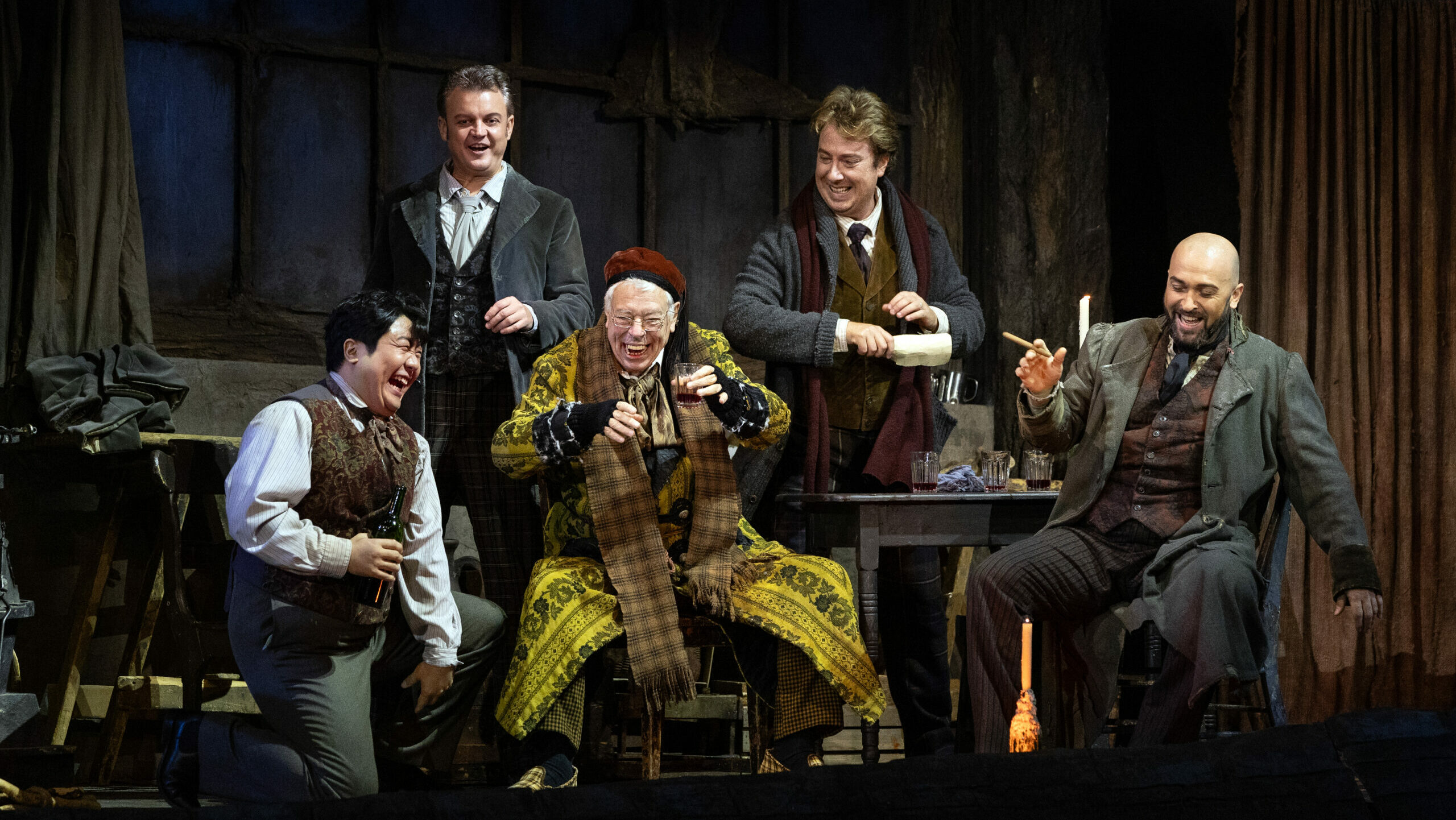
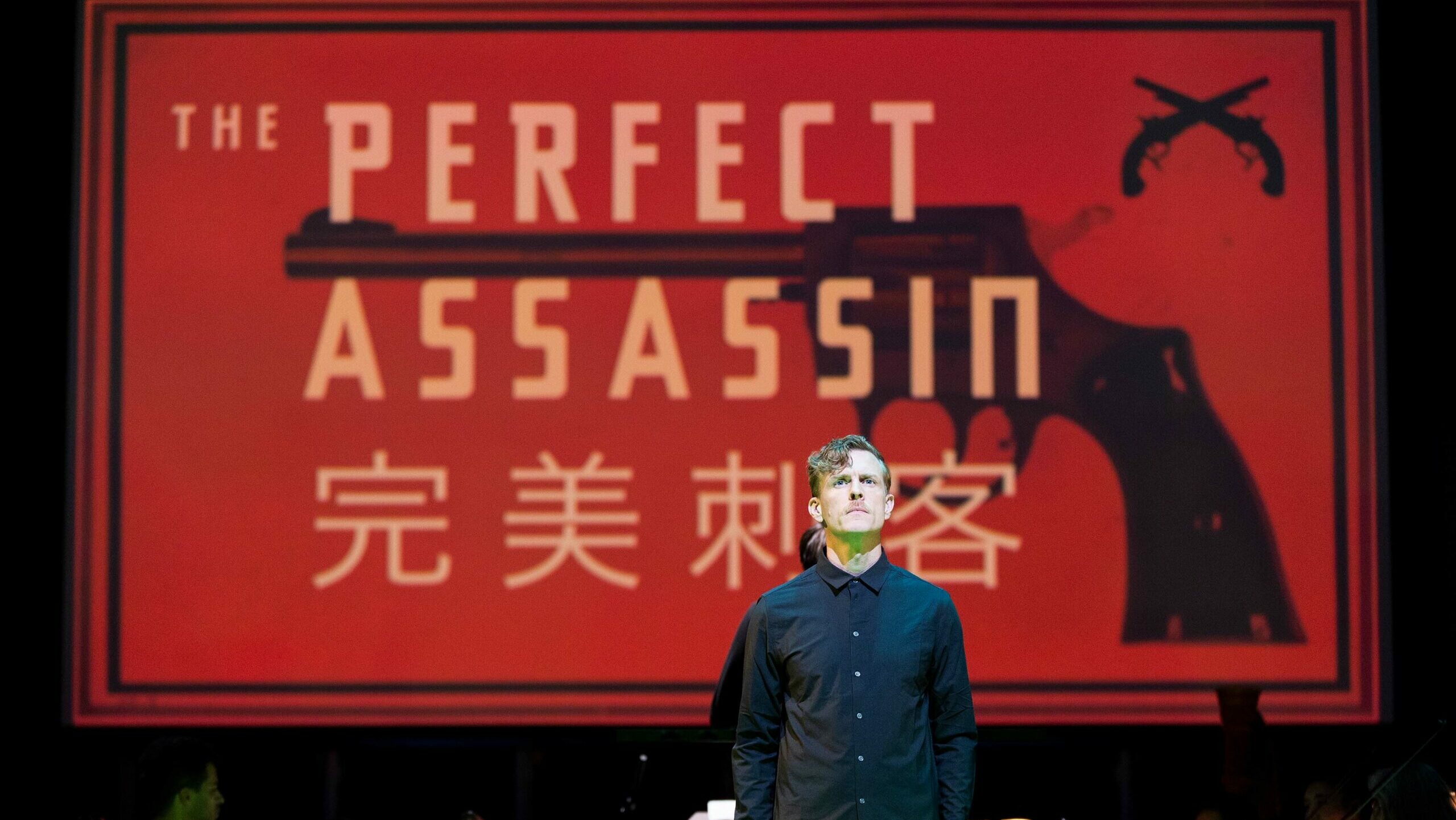
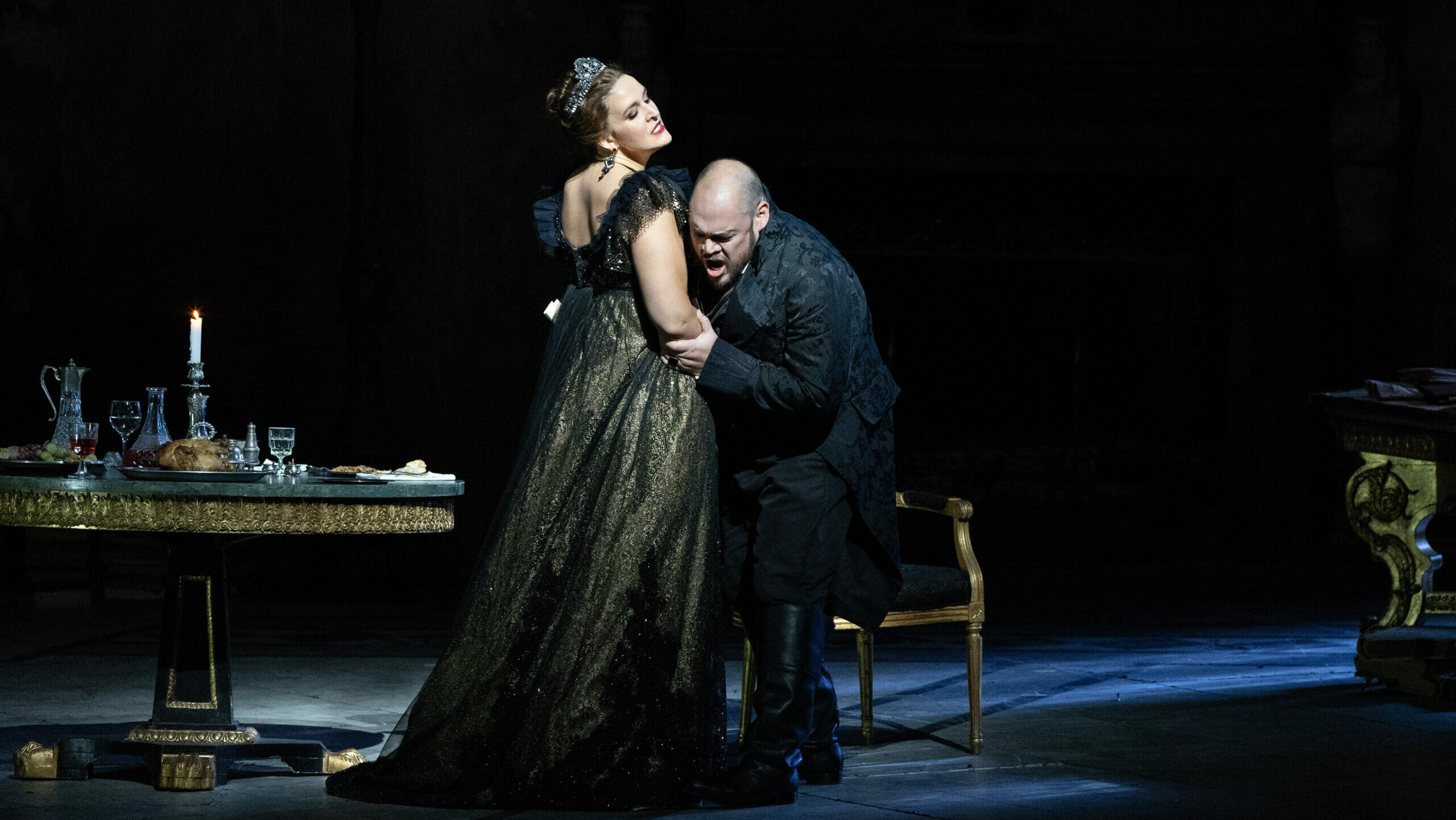

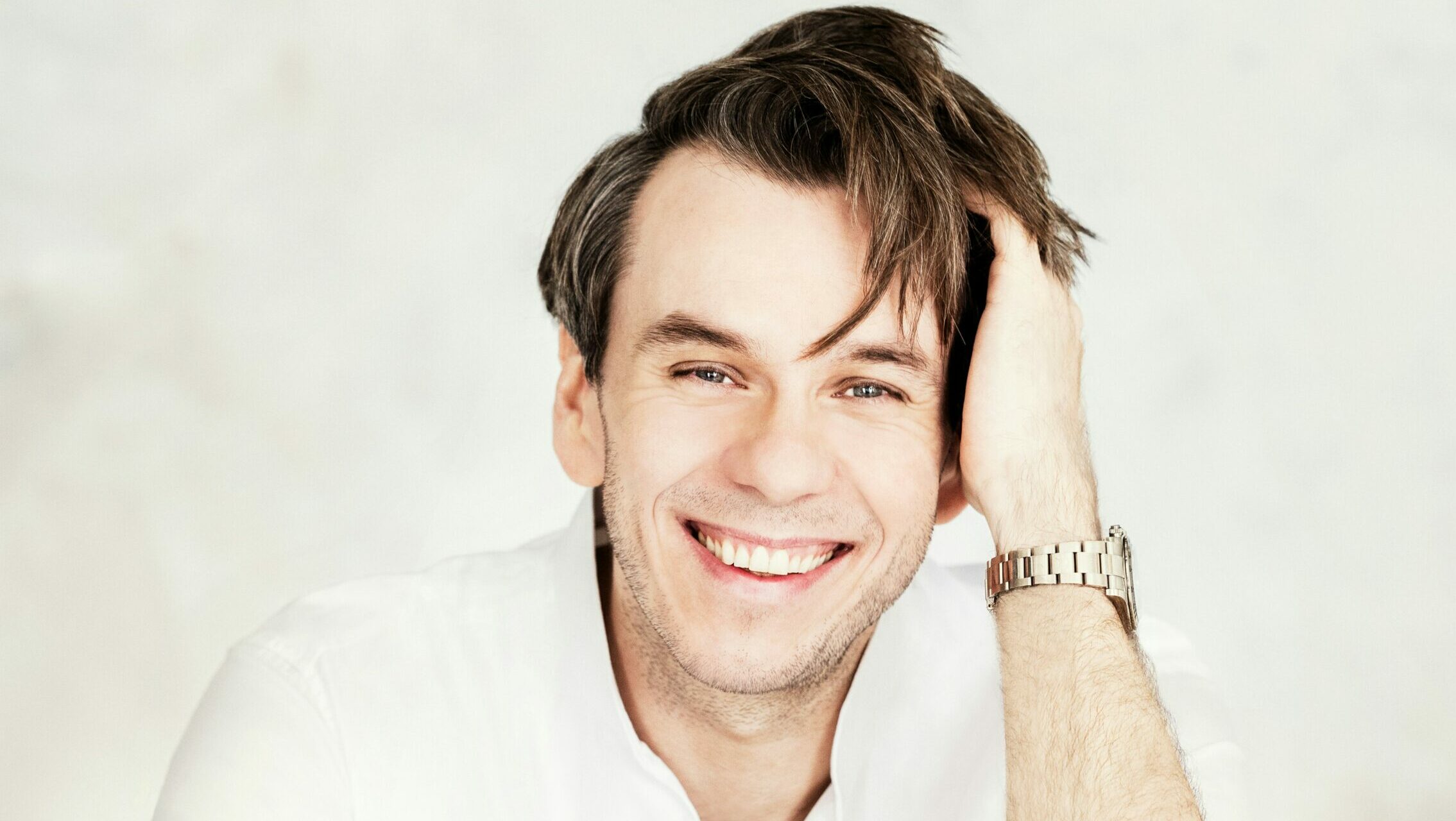
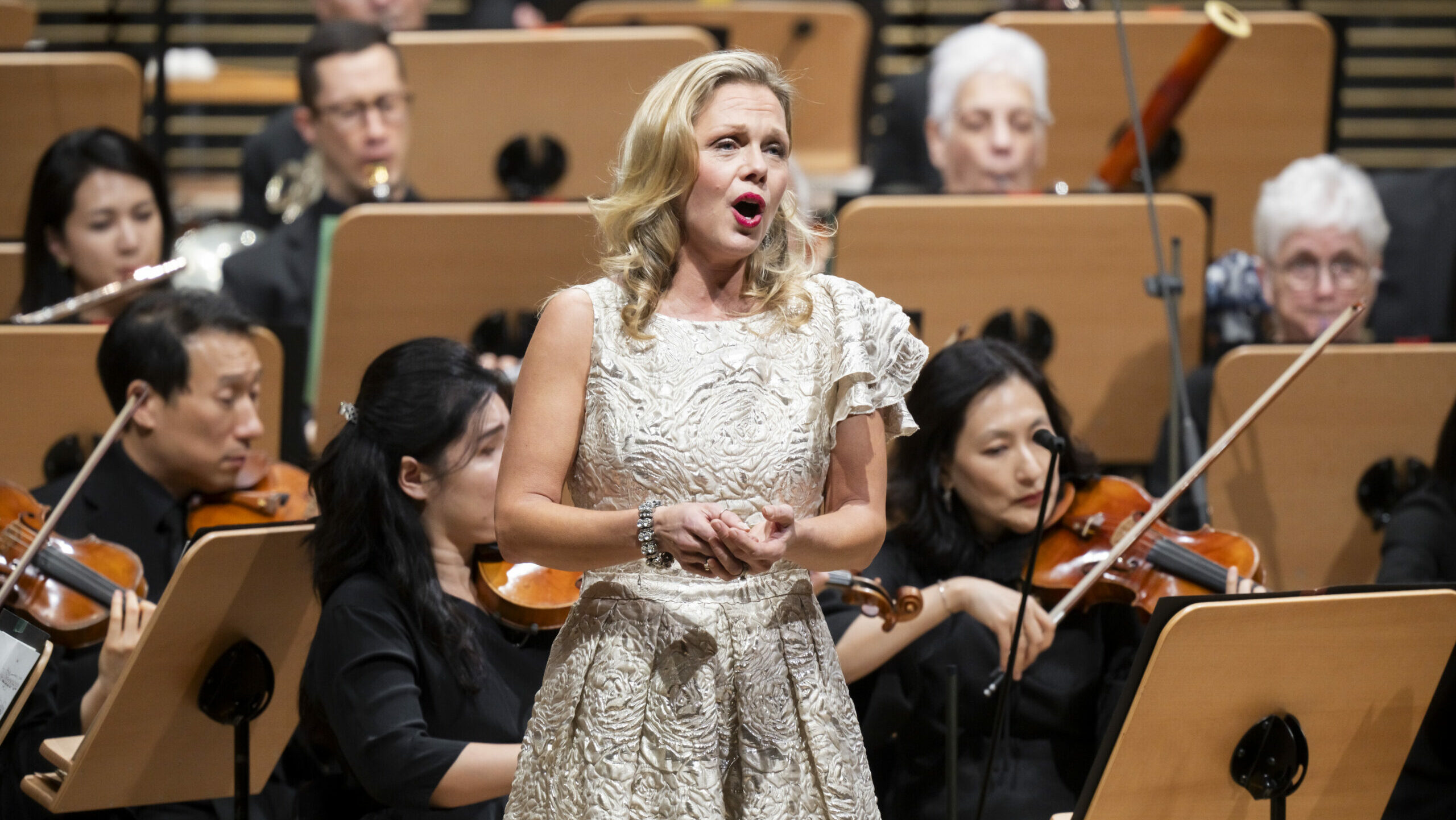
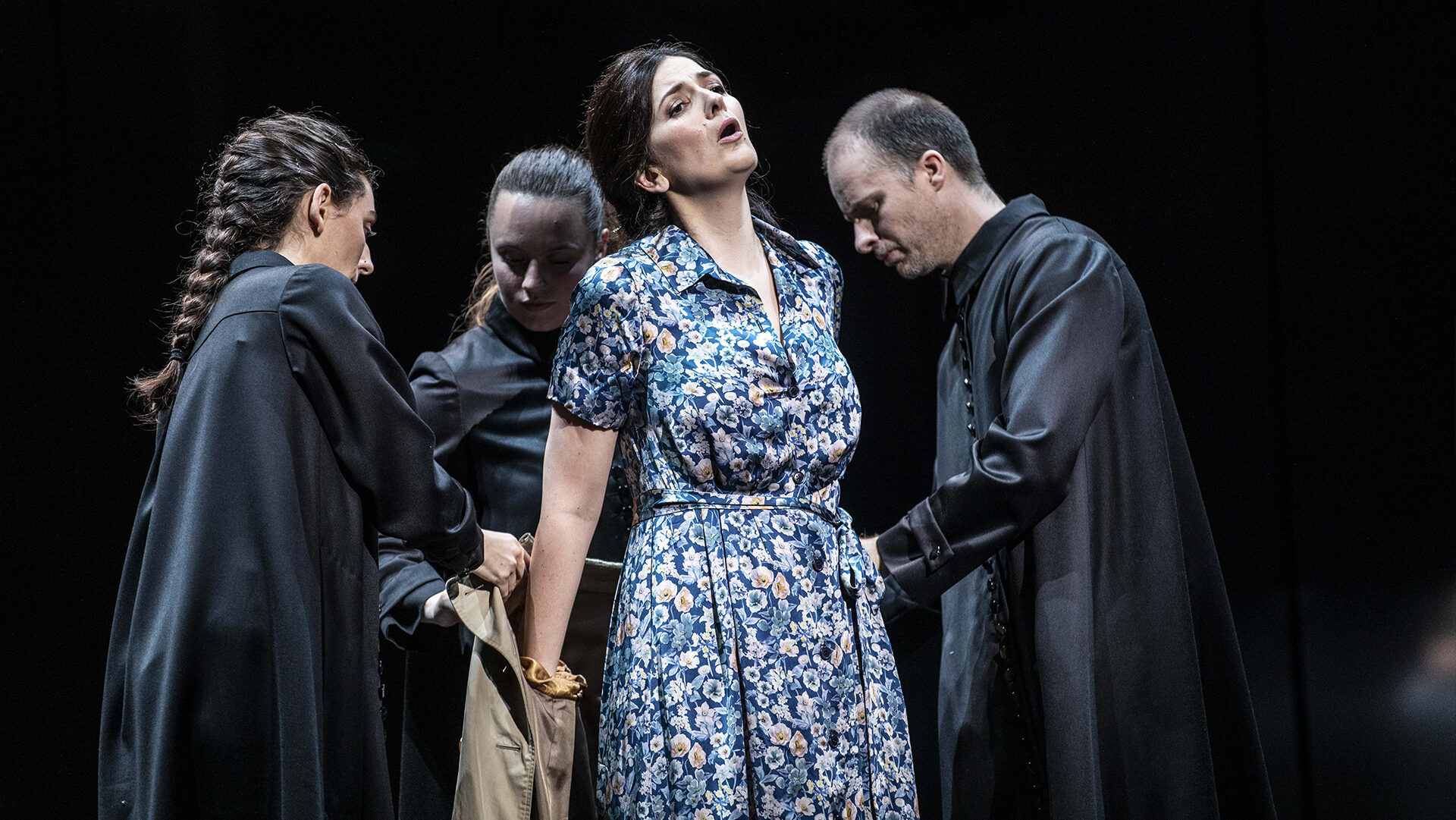
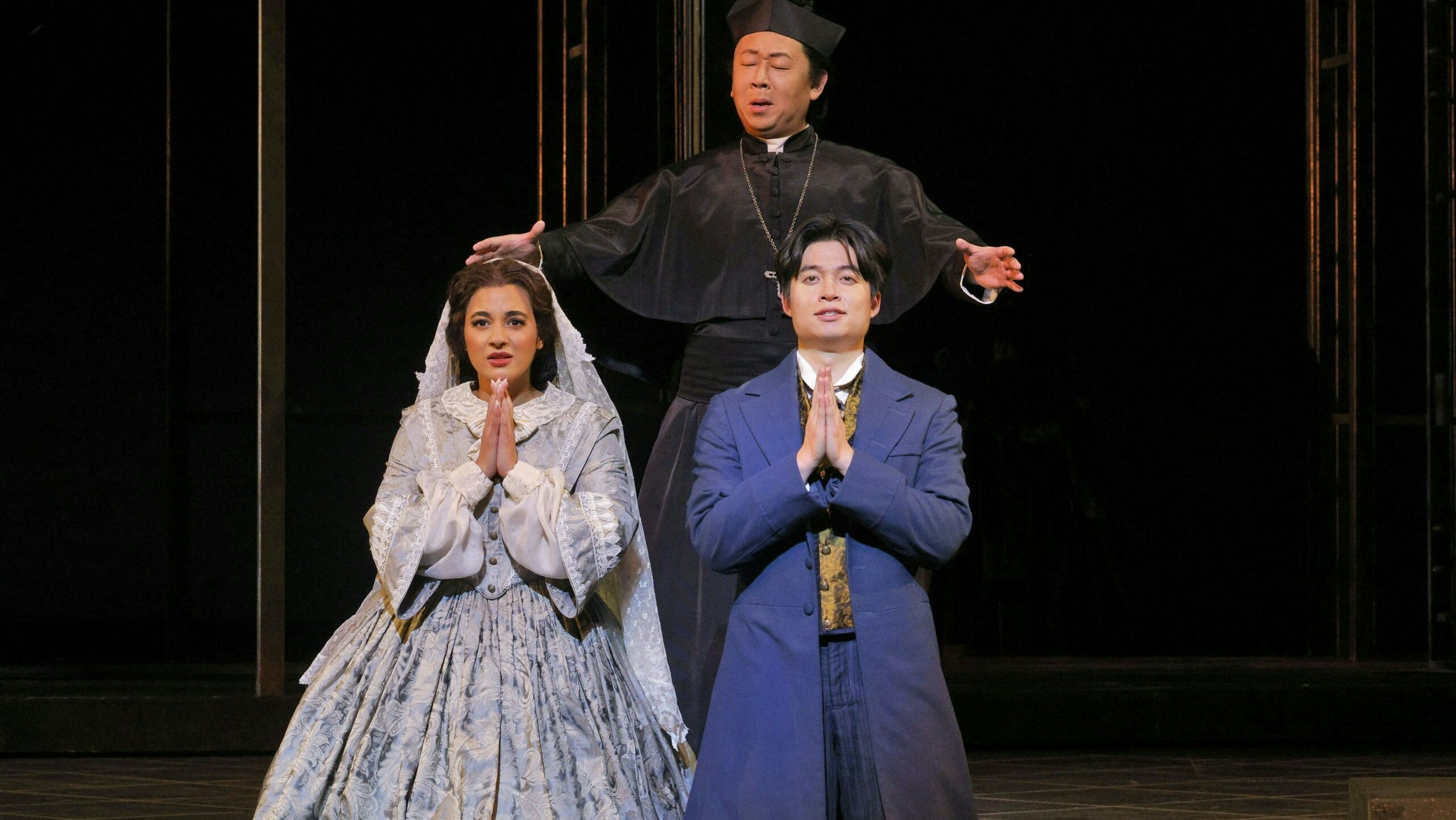
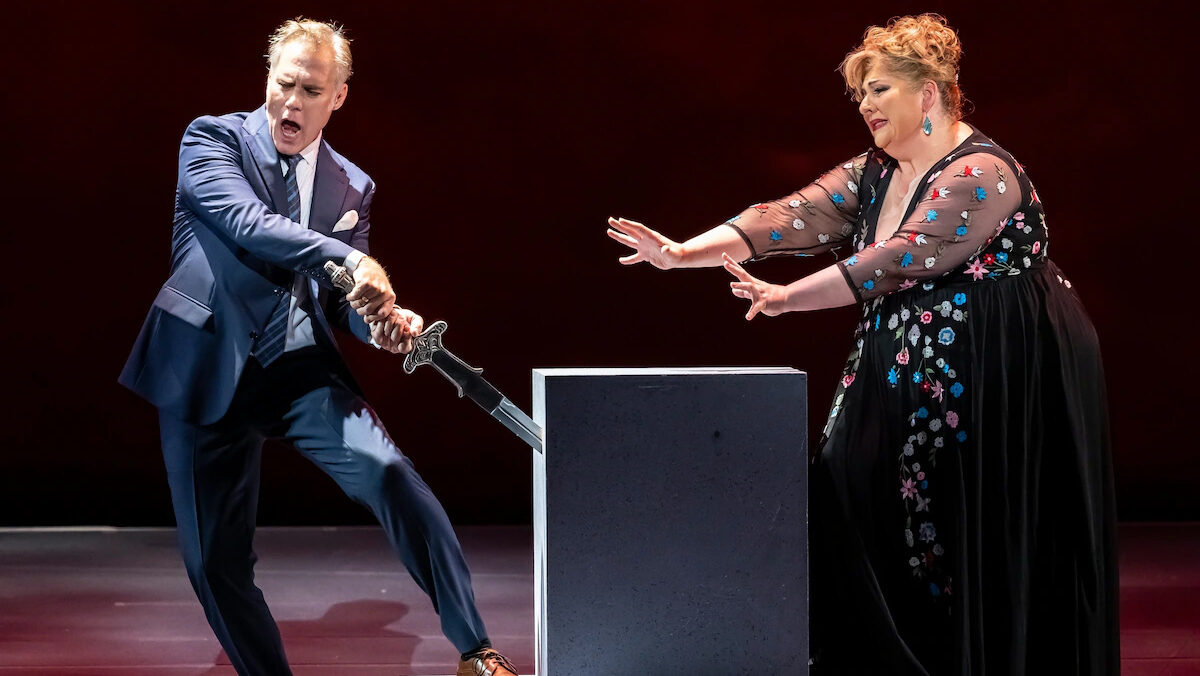
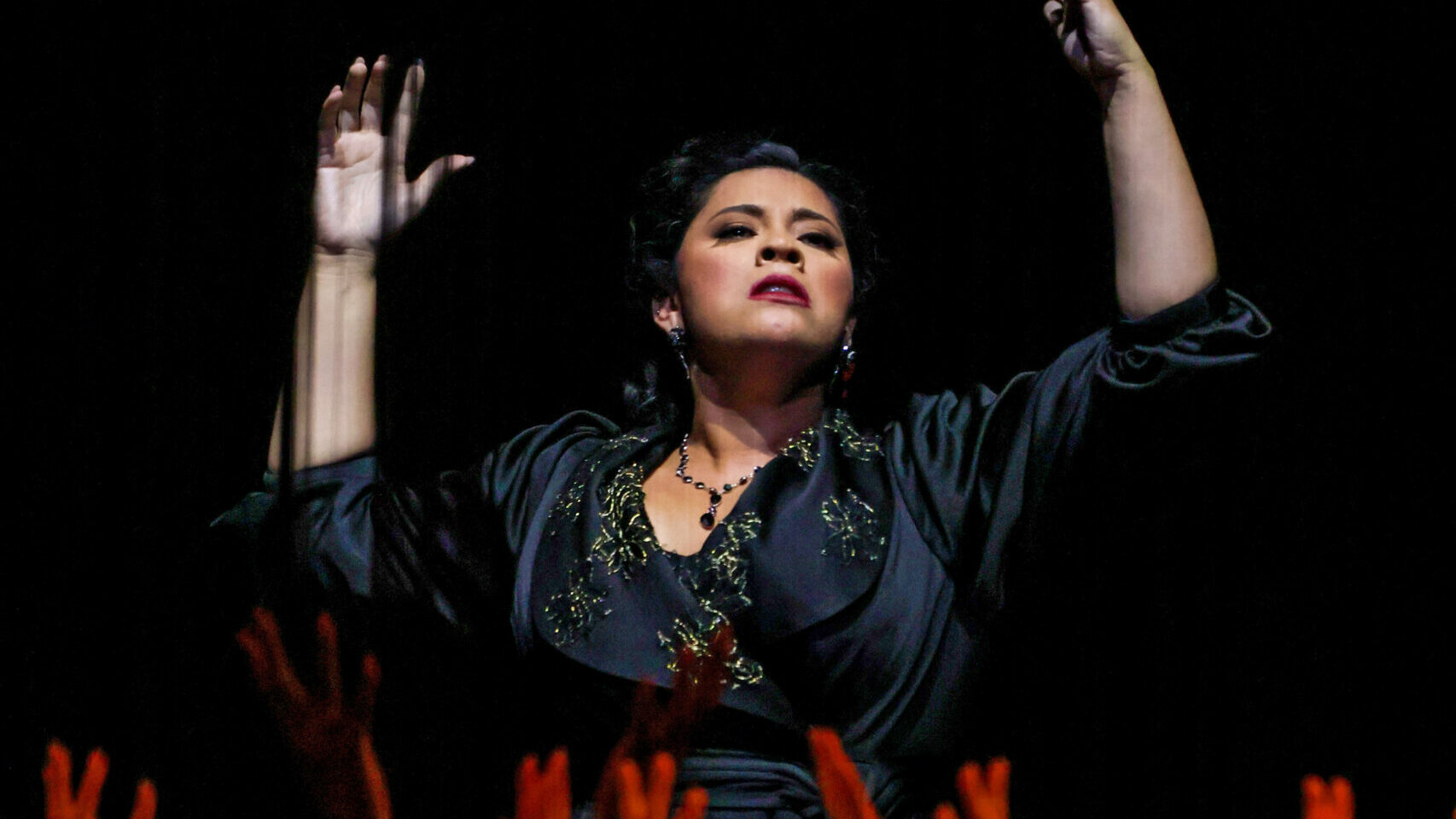
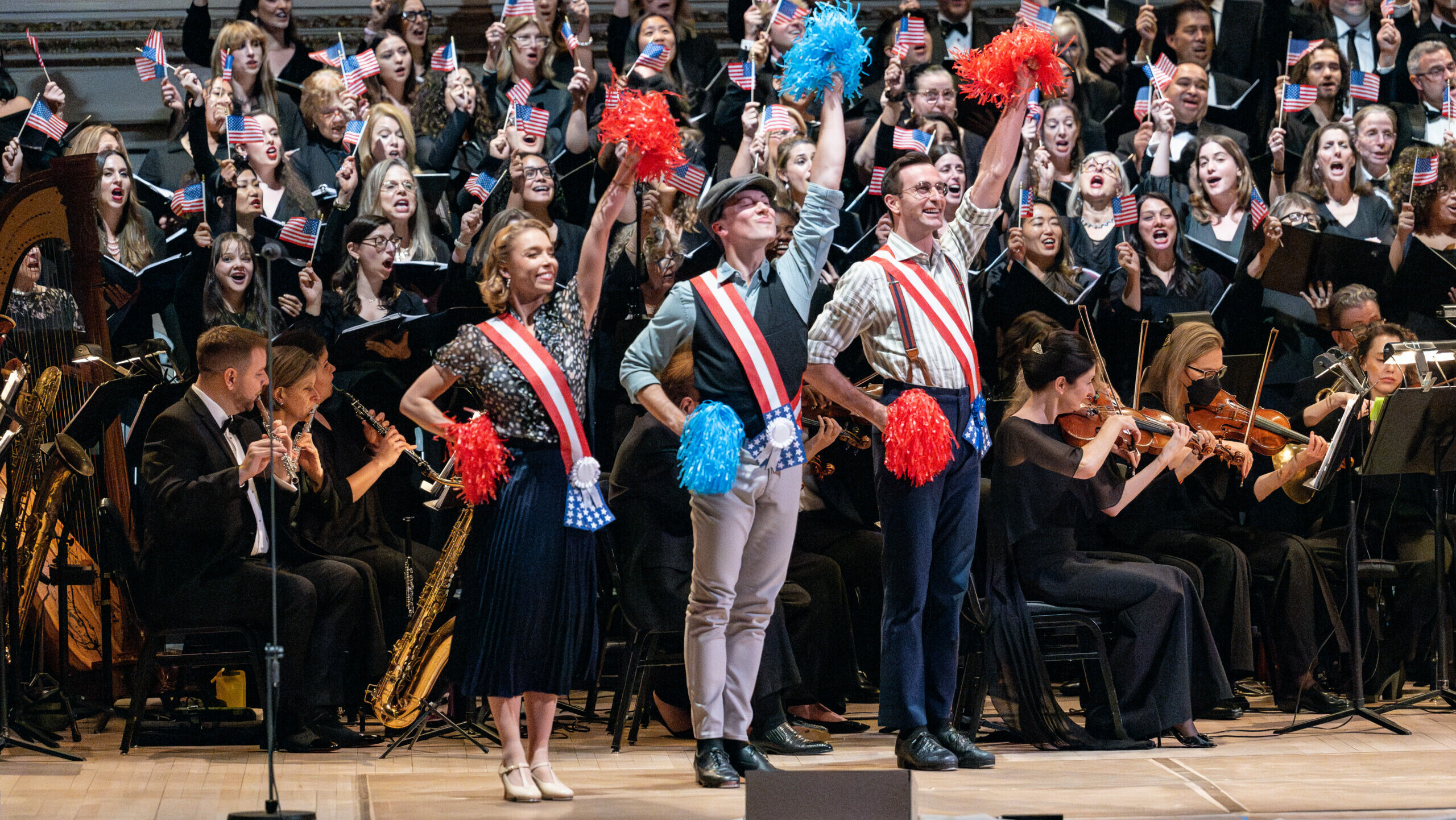
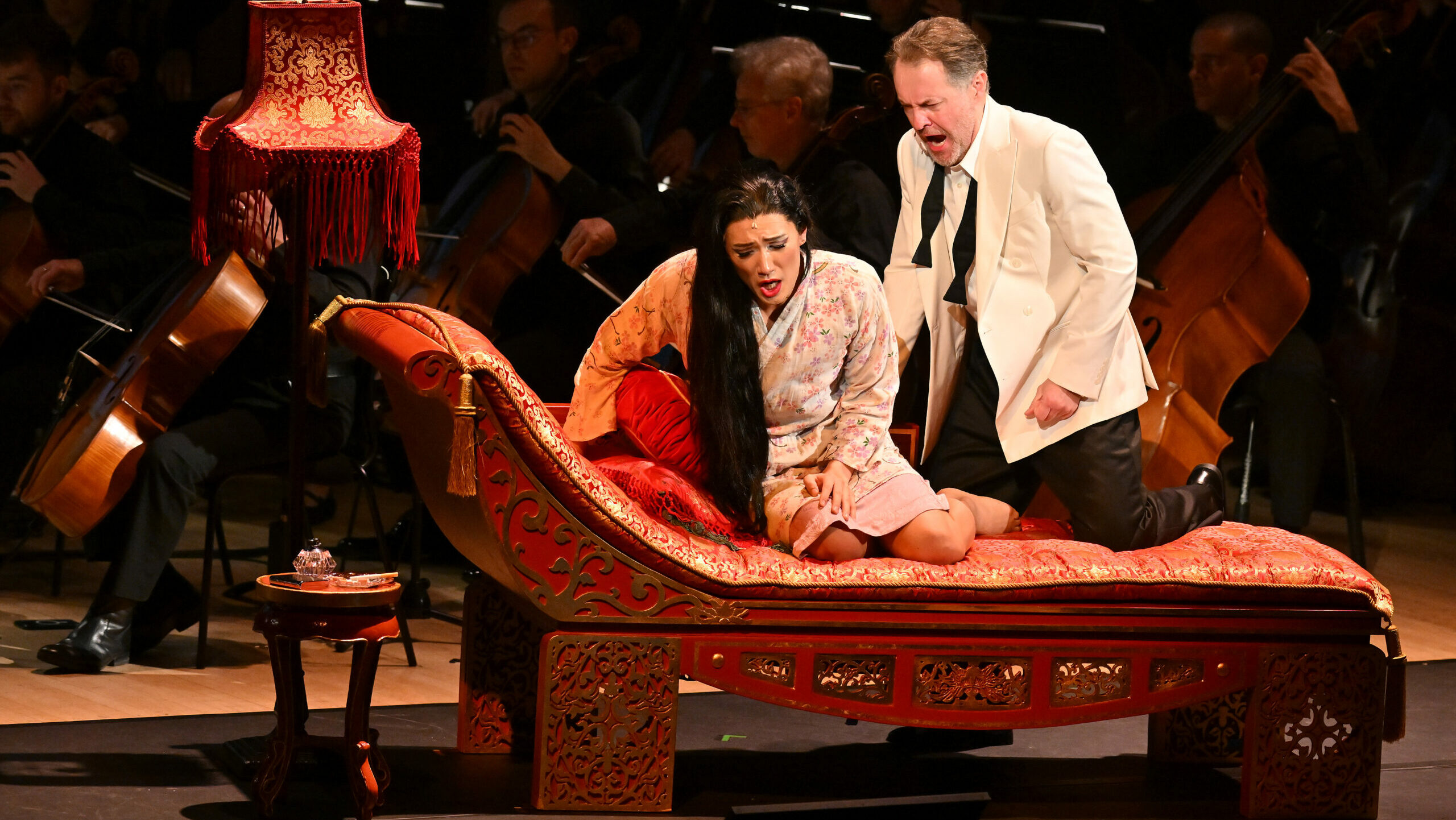
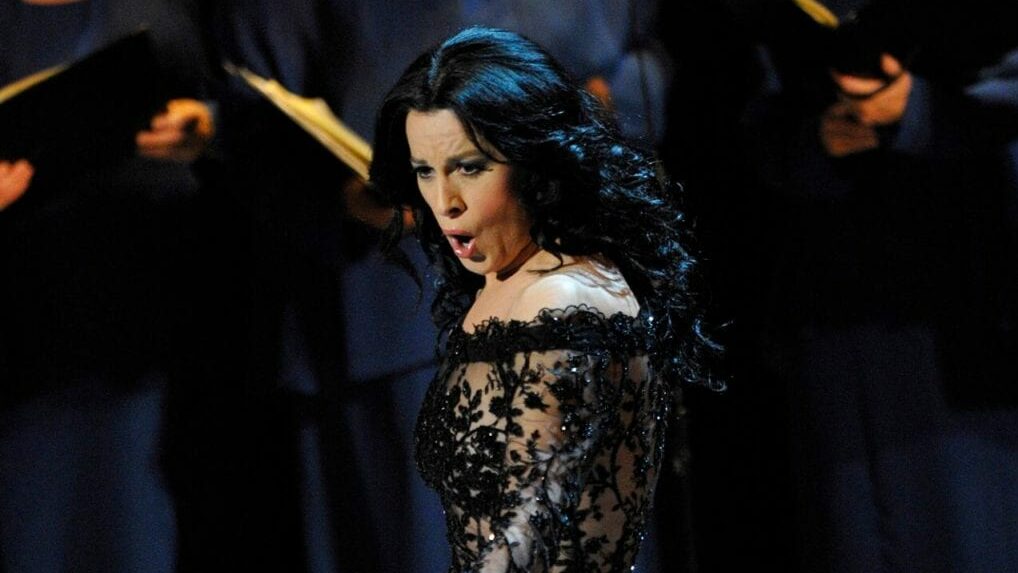





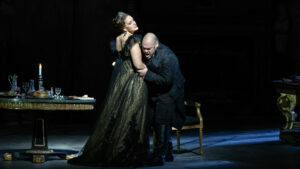
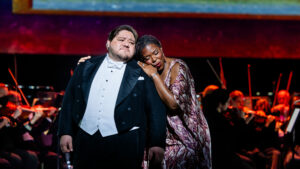




Comments